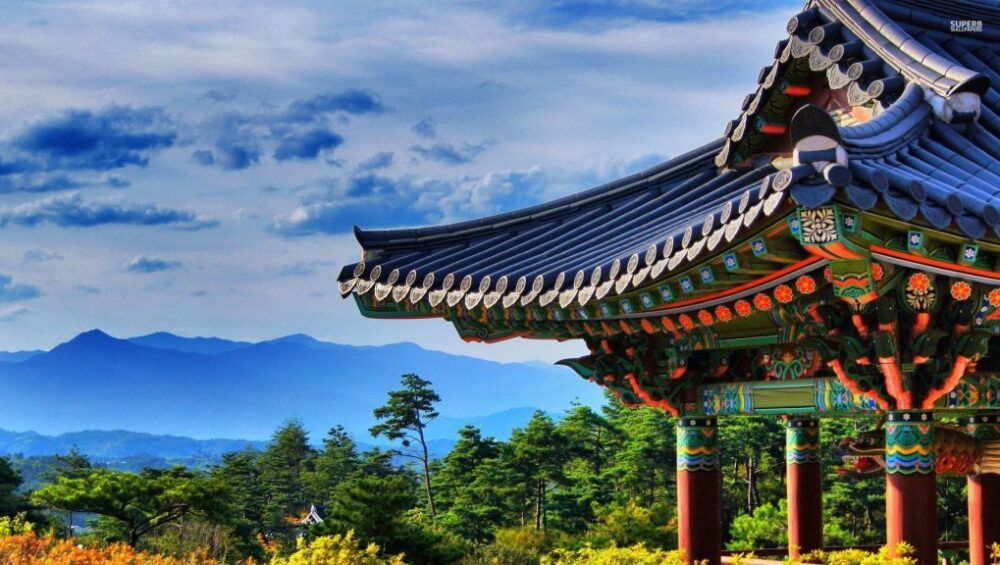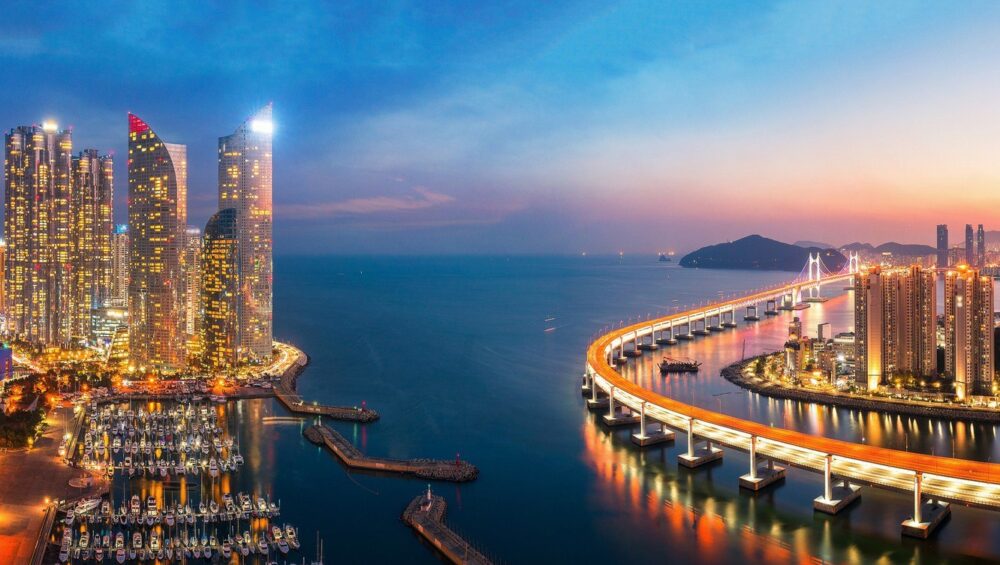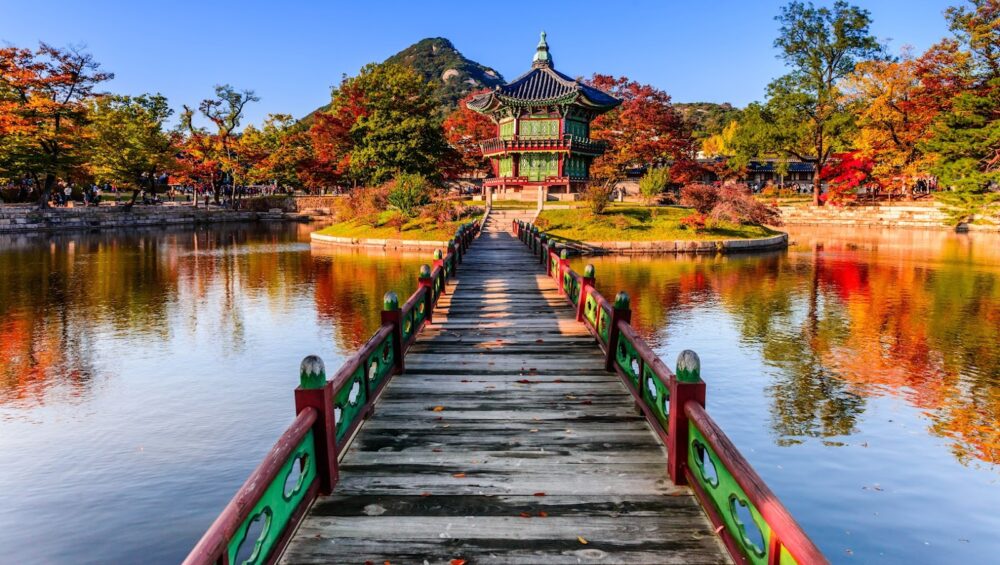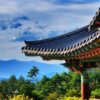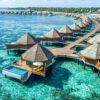What is Famous in South Korea? 11 Best Things to Experience
South Korea offers a rich mix of history, culture, technology & natural beauty. Here are 11 of the best things to experience in South Korea: –
1. Visit Gyeongbokgung Palace
- Why: A magnificent symbol of Korea’s royal heritage, this palace in Seoul offers insight into the Joseon Dynasty.
- Highlights: The changing of the royal guard ceremony and exploring the vast palace grounds and traditional architecture.
2. Explore Bukchon Hanok Village
- Why: For a glimpse into traditional Korean living.
- Highlights: Strolling through the village, you’ll find centuries-old hanok (traditional Korean houses), quaint tea houses, and cultural workshops.
3. Hike at Seoraksan National Park
- Why: It’s one of the most beautiful mountain ranges in Korea.
- Highlights: Scenic trails, temples like Sinheungsa, stunning autumn foliage, and breathtaking views of nature.
4. Try Korean BBQ
- Why: One of the country’s most beloved culinary experiences.
- Highlights: Grill your own meat at the table, enjoy side dishes (banchan), and dip tender cuts in sesame oil or spicy sauces.
5. Shop in Myeongdong
- Why: South Korea is a global hub for skincare and fashion.
- Highlights: Myeongdong offers a vast selection of Korean beauty products, trendy clothes, and delicious street food.
6. Discover Jeju Island
- Why: Known as the “Hawaii of Korea,” it’s famous for its natural wonders.
- Highlights: Explore Hallasan Mountain, the lava tubes, waterfalls, and pristine beaches, or visit Seongsan Ilchulbong (Sunrise Peak).
7. Visit the Demilitarized Zone (DMZ)
- Why: A rare glimpse into the political tension between North and South Korea.
- Highlights: Stand on the borderline at Panmunjom, explore the Third Tunnel, and view North Korea from the observatories.
8. Experience Korean Temples (Buddhism)
- Why: For spiritual and historical insight.
- Highlights: Temple stays at places like Bulguksa in Gyeongju or Haeinsa, home to the Tripitaka Koreana, offer meditation, cultural immersion, and stunning surroundings.
9. Watch a K-pop Concert or Visit K-pop Landmarks
- Why: K-pop has taken the world by storm, and there’s no better place to experience it than in Korea.
- Highlights: Attend live concerts or visit the SMTOWN Museum in Seoul or the K-Star Road in Gangnam for celebrity hotspots.
10. Relax in a Korean Jjimjilbang
- Why: Experience Korea’s unique spa and sauna culture.
- Highlights: A jjimjilbang features baths, saunas, hot rooms, and relaxation areas, providing a rejuvenating escape from city life.
11. Explore Lotte World and Everland
- Why: Both are major theme parks offering fun for families, couples, or solo travelers.
- Highlights: Lotte World in Seoul has the largest indoor theme park in the world, while Everland offers roller coasters, safari experiences, and seasonal festivals.
South Korea offers a balance of modern innovation & traditional culture making it a fascinating destination to explore.

